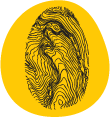
BIO_SOS´ EODHaM System towards an operational Habitat Monitoring Service for institutional users
The FP7 project BIO_SOS elaborates the EODHaM System, which combines several stages of elaboration into a single workflow. The EODHaM system is an operational prototype of an ecological modelling system for effectively and multi-annual monitoring of NATURA 2000 sites (and other ecologically sensitive sites) and their surrounding areas.
The EODHaM system is defined as a complete automatic system of work-flow administration. The system will serve in efficiency the aim of the project for a multi-annual monitoring of NATURA 2000 site and their surrounding areas, as other ecologically sensitive sites. The EODHaM system will use different technologies with final aim the processing, production, cataloguing, and distribution of the BIO_SOS product.
The EODHaM system, will be composed by different distinct BIO_SOS processing modules and shall aim in the coordinated execution of the individual tasks and activities, with organized method having as final result the collaborative processing and BIO_SOS products production. Each BIO_SOS processor module forms a distinct unit of the EODHaM system with instruction of executions as derived from the built processing algorithm and shall be exposed to the system as web-based services of those structured activities.
The strength of this system lies in its flexibility in order to integrate site specific configurations for processing steps (including the use of specific ancillary data). A monitoring service based on this system must consider these domain specific configurations to be part of its offering, integrating thus scientific expertise into an operational workflow.
Due to several national and regional differences in policies/ funding and the lack of a centralised management of biodiversity data, even at the same regional-local level, a noticeable effort is required in order for a continuous, operational and quasi real-time monitoring of ecologically sensitive areas to be initiated. In search of such a monitoring system, the starting point should be to know the main 'actors' requirements and expectations. According to them, it is expected that such a system should:
• function at fine spatial scales (1:5,000 or finer) where habitats ought to be represented,
• be user-oriented efficient and reliable,
• be sensitive to changes in the input datasets and the user-defined parameters
• minimize the time between data acquisition and product delivery
• minimize the involved costs (e.g., by reducing manpower, exploiting open source software solutions, etc.)
The system is tested on some selected area distributed in Europe and extra European countries (India and Brazil) representative of the different habitat typology. Planetek is involved in three test areas: Italy, Netherland and Greece.
This activity has a twofold aim: to test the operativiness of the system on different areas based on a set of common algorithms and site specific rules and the match between the user requirements and the system performance.
